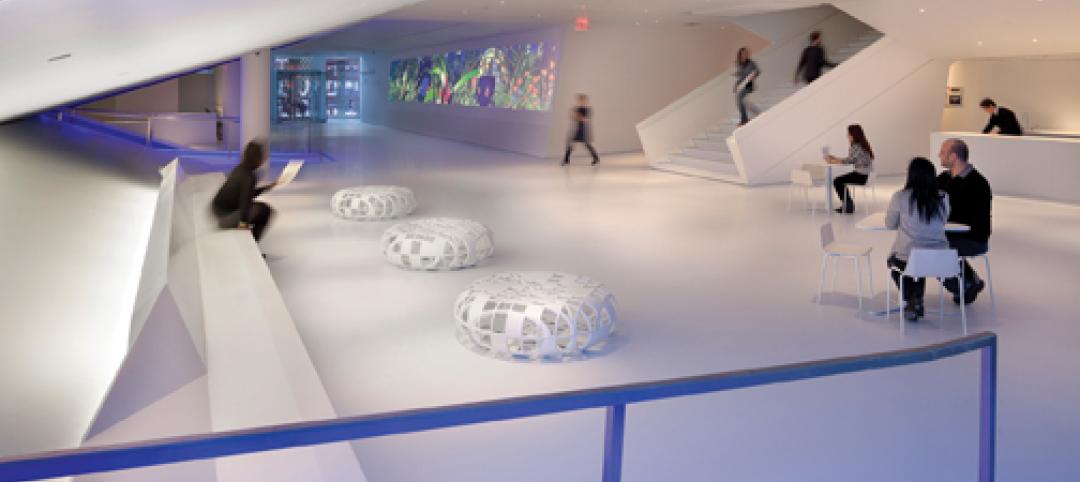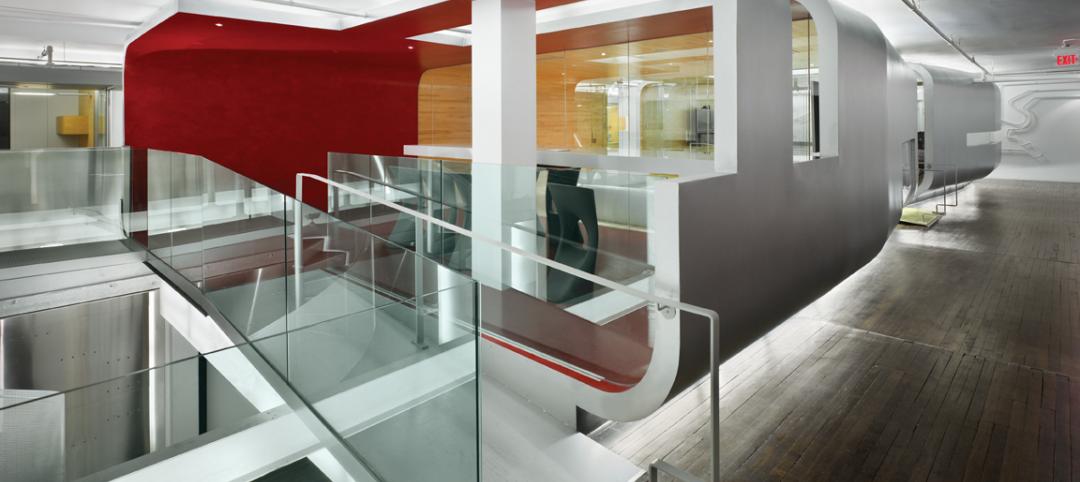Despite a steep economic recession during the first half of 2020, compensation for architectural staff at U.S. architecture firms essentially held flat over the 2019–2021 period, according to the American Institute of Architects (AIA) biannual Compensation Report.
“Like many professions, architecture firms across the country have had to weather an incredibly volatile period,” said AIA Chief Economist Kermit Baker, PhD, Hon. AIA. “While we have seen an unprecedented recovery in architecture firm billings during 2021, this report provides a valuable snapshot of the impact the pandemic had last year on firm compensation and employment levels.”
According to the report, architecture firms lost 16,000 positions between February and their low in July of 2020, which is 8% of all payroll positions at firms. Meanwhile the overall economy lost over 21 million payroll positions between February and April of 2020, or 16.5% of total payrolls.
The biannual compensation report provides salary data for more than 40 architecture firm positions in cities across the United States as well as industry salary trends and analysis on where the market is headed.
Key findings of this year’s report, include:
— Average compensation for recent architecture graduates was just under $56,000, however, there continues to be considerable variation in starting compensation nationally, with average starting compensation ranging from around $48,000 to $69,000, depending on the region of the country.
— Despite generally outpacing compensation growth in the broader economy, architect compensation is also much more volatile. Between 2019 and 2021, architect compensation increased 0.3% per year, while all professional compensation increased 2.4% annually, and 3.1% for all private workers.
— At firms with fewer than 50 employees, benefits as a share of base pay declined to 14.4% on average in 2020, after averaging just over 18% nationally two decades ago.
In addition to the compensation survey, AIA offers members a salary calculator to learn topline data on architecture position salary ranges by region of the country.
Complete results from the 2021 AIA Compensation Survey can be purchased online.
Related Stories
| Apr 14, 2011
USGBC debuts LEED for Healthcare
The U.S. Green Building Council (USGBC) introduces its latest green building rating system, LEED for Healthcare. The rating system guides the design and construction of both new buildings and major renovations of existing buildings, and can be applied to inpatient, outpatient and licensed long-term care facilities, medical offices, assisted living facilities and medical education and research centers.
| Apr 13, 2011
National Roofing Contractors Association revises R-value of polyisocyanurate (ISO) insulation
NRCA has updated their R-value recommendation for polyisocyanurate roof insulation with the publication of the 2011 The NRCA Roofing Manual: Membrane Roof Systems.
| Apr 13, 2011
Professor Edward Glaeser, PhD, on how cities are mankind’s greatest invention
Edward Glaeser, PhD, the Fred and Eleanor Glimp Professor of Economics at Harvard University and director of the Taubman Center for State and Local Government and the Rappaport Institute for Greater Boston, as well as the author of Triumph of the City: How Our Greatest Invention Makes Us Richer, Smarter, Healthier, and Happier, on how cities are mankind’s greatest invention.
| Apr 13, 2011
Southern Illinois park pavilion earns LEED Platinum
Erin’s Pavilion, a welcome and visitors center at the 80-acre Edwin Watts Southwind Park in Springfield, Ill., earned LEED Platinum. The new 16,000-sf facility, a joint project between local firm Walton and Associates Architects and the sustainability consulting firm Vertegy, based in St. Louis, serves as a community center and special needs education center, and is named for Erin Elzea, who struggled with disabilities during her life.
| Apr 13, 2011
Virginia hospital’s prescription for green construction: LEED Gold
Rockingham Memorial Hospital in Harrisonburg, Va., is the commonwealth’s first inpatient healthcare facility to earn LEED Gold. The 630,000-sf facility was designed by Earl Swensson Associates, with commissioning consultant SSRCx, both of Nashville.
| Apr 13, 2011
Office interaction was the critical element to Boston buildout
Margulies Perruzzi Architects, Boston, designed the new 11,460-sf offices for consultant Interaction Associates and its nonprofit sister organization, The Interaction Institute for Social Change, inside an old warehouse near Boston’s Seaport Center.
| Apr 13, 2011
Expanded Museum of the Moving Image provides a treat for the eyes
The expansion and renovation of the Museum of the Moving Image in the Astoria section of Queens, N.Y., involved a complete redesign of its first floor and the construction of a three-story 47,000-sf addition.
| Apr 13, 2011
Duke University parking garage driven to LEED certification
People parking their cars inside the new Research Drive garage at Duke University are making history—they’re utilizing the country’s first freestanding LEED-certified parking structure.
| Apr 13, 2011
Red Bull Canada HQ a mix of fluid spaces and high-energy design
The Toronto architecture firm Johnson Chou likes to put a twist on its pared-down interiors, and its work on the headquarters for Red Bull Canada is no exception. The energy drink maker occupies 12,300 sf on the top two floors of a three-story industrial building in Toronto, and the design strategy for its space called for leaving the base building virtually untouched while attention was turned to the interior architecture.
| Apr 13, 2011
Former department store gets new lease on life as MaineHealth HQ
The long-vacant Sears Roebuck building in Portland, Maine, was redeveloped into the corporate headquarters for MaineHealth. Consigli Construction and local firm Harriman Architects + Engineers handled the 14-month fast-track project, transforming the 89,000-sf, four-story facility for just $100/sf.















